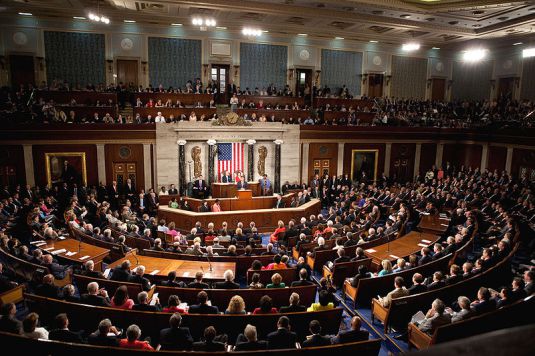“My name is Marco Rubio, and I approved this message.”
“My name is Bernie Sanders and I approved this message.”
Have you ever wondered why people who are running for office say this at the end of a TV commercial in support of his or her campaign? No? Why not? It’s important!
No really, it is important. Candidates for office are bound by campaign finance laws as we discussed last week. However their campaigns are not the only ones spending money on promoting their name and good deeds. The rules for funding a campaign have changed under the infamous Supreme Court case, Citizens United v. FEC (Federal Election Commission). As a result of the court’s ruling, if a candidate’s campaign (which is actually a non-profit corporation) runs a TV ad, the candidate needs to legally satisfy the requirement that this ad was paid for entirely by the campaign. According to the FEC, under federal legislation, a campaign is only able accept $2,700.00 from any donor.
But wait, why can the government tell someone they can’t spend more than a specified amount on something? Isn’t this America, where I could spend all my money buying Dum-Dums if I wanted to? Well, sort of. In Citizens United v. FEC, the Supreme Court stated that if anyone or any group wants to spend all of its money to get someone elected, the government can do very little to stop that person or group from spending their money. The Court did uphold campaign finance limits – meaning a campaign can collect no more than $2,700.00 from any donor. With that said, the Court also allowed for donors to give as much money as they want to support specific causes or campaigns, as long as they are not directly affiliated with that campaign.
This is where the idea of Independent Expenditure Only Committees comes in. These committees, otherwise known as Super PAC’s, are organizations which can spend unlimited money in support of candidates as long as the Super PAC is not affiliated in any way with the candidate.
Here is yet again another debate in our government. Should these companies be able to spend as much as they want because it is their money? Or should they be limited because they can have too much influence on policy makers? A good portion of our country argues that yes, these Super PAC’s can do whatever they want with their money because they earned it. If the Supreme Court said that they can to run campaign ads for a specific candidate under their First Amendment rights to freedom of speech, then they are certainly allowed to do so. On the other hand, these Super PAC’s are usually formed by a small group of wealthy people who can actually afford to spend a lot of money on campaign ads. Some people feel as if though their first amendment rights are being taken away because Super PAC’s have too much influence in our government. If these Super PAC’s are funneling so much money into the campaigns of candidates, it would make sense that when these candidates are elected into office, they have strings tied to the Super PAC’s. This makes policy makers more vulnerable to adhere to what these groups want rather than what the people want. You can decide for yourself how you think the candidate should get the funds that they need.
Next time you get annoyed watching the football game or the news because of presidential campaign ad reruns, listen to who the ad is coming from. You’ll see that a lot of the ads don’t even come from the candidates themselves. Money really does make the campaign go ‘round and the candidates know this. I don’t know whether or not Super PAC’s have too much power in our government but what I do know is that as the primaries come closer, we’ll be seeing a lot more of ads and a lot more coverage from the media.





